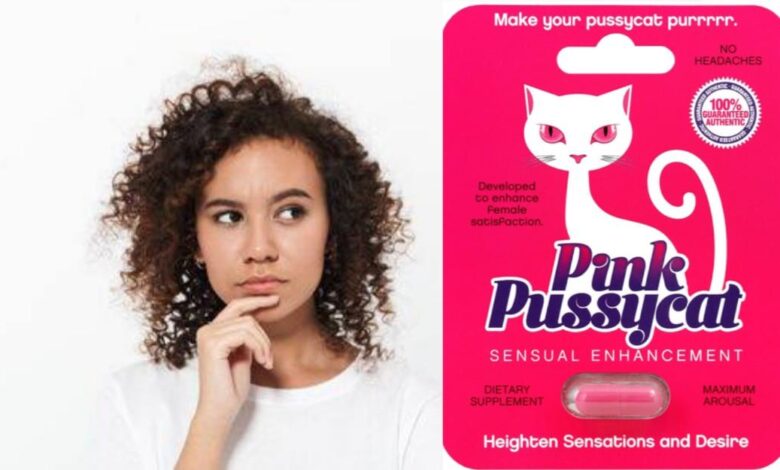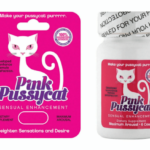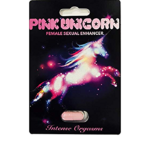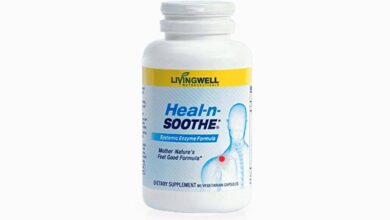Are Pink Pussycat Sex Pills Safe For You to Take?

Women’s sexual desires naturally fluctuate over the years. Highs and lows commonly coincide with the beginning or end of a relationship or with major life changes, such as pregnancy, menopause, or illness. Some medications used for mood disorders also can cause low sex drive in women. If your lack of interest in sex continues or returns and causes personal distress, you may have a condition called sexual interest/arousal disorder.
This condition is quite common and with a high overall prevalence of 43% in US women ages 18-59. Research indicates that low desire was reported by 22%, arousal problems by 14%, and sexual pain by 7%. Some of the things that can dim women’s sex drive include Physical issues, including hormonal changes related to menopause or childbirth, or thyroid problems, chronic stress, including in your relationship, depression, or other mental health issues. In addition, some prescription drugs may also affect libido, including some types of antidepressants, birth control pills, anti-anxiety drugs, and blood pressure medications.
What are Pink Pussycat pills?
Pink Pussycat pills are promoted as an all-natural enhancement supplement that creates heightened sensitivity to touch and warmth, greater lubrication, and increase satisfaction for women. It works by increasing blood flow to the female genitals.
Are Pink Pussycat Sex Pills Safe to Take?
Dietary supplements like Pink Pussycat pills are regulated by the FDA as food, not as drugs, as a result, they do not go through the rigorous testing process required for drugs. However, many dietary supplements contain ingredients that have strong biological effects which may conflict with a medicine you are taking or a medical condition you may have, it is recommended that you consult with your doctor or healthcare provider before taking Pink Pussycat pills.
The FDA recently warned consumers against buying or using Pink Pussycat because it contains an undeclared ingredient (Viagra). Do not take Pink Pussycat pills with prescription and over-the-counter medications without discussing with your doctor or healthcare provider. When taken as directed, Pink Pussycat pills are likely safe, pose no short-term or long-term health risks, and are not addictive or habit-forming.
What are the side effects of Pink Pussycat pills?
Some instant female arousal pills like pink pussycat sex pills can produce very unpleasant side effects and disruptive reactions. Always discuss with your physician before using pink pussycat sex pills so that he or she can alert you to any potentially dangerous side effects to look out for. Tell your doctor about other medications you might be taking to make sure they won’t react negatively with your pink pussycat pills. Your doctor may tell you that other substances, such as alcohol, could affect the strength and safe use of your pill. Below are the ingredients in pink pussycat sex pills and their possible side effects:
Goji extract: these berries are often sold powdered or dried. Plus, they’re added to many supplements and juice blends. Goji extract may trigger an allergic reaction in rare cases, especially in individuals who are allergic to other fruits. Additionally, goji berries extract may interact with certain drugs, including blood thinners and medications for diabetes or high blood pressure. What’s more, you should exercise caution if you’re pregnant, or planning to get pregnant as they contain betaine, a compound that may harm fetal health.
Deng sen extract: While many supplements purport to rely on herbal ingredients such as deng sen extract, it can cause some side effects, including itching, upset stomach, and reduced appetite. There is some concern that it might also cause drowsiness, dizziness, and a blood condition called thrombocytopenia.
Atractylodes: is one of the most famous tonic herbs from China. In traditional Chinese medicine (TCM), it is said to tonify the blood and spleen. Atractylenolide, a chemical found in atractylodes, seems to be safe when taken in appropriate amounts (1.32 grams daily) for a short period of time (up to seven weeks). It can cause nausea, dry mouth, and leave a bad taste in the mouth.
Cinnamon bark: The oils found in cinnamon bark are thought to reduce spasms, reduce gas (flatulence), and also increase blood flow. However, it can be irritating to the skin and mucous membranes, including the stomach, intestine, and urinary tract. It can cause side effects such as diarrhea, vomiting, dizziness, drowsiness, and others.
Cornus (Dogwood): people use American dogwood for headaches, fatigue, fever, and ongoing diarrhea and to increase strength, appetite, and as a tonic. But there is no good scientific evidence to support these uses. Reported side effects include nausea and vomiting.
Cuscuta (Dodders): is a parasitic plant. Its seed is commonly used as a tonic for the liver and kidney in herbal medicines. Dodder powder is possibly safe when taken by mouth in doses of up to 2 grams daily for up to 8 weeks. There isn’t enough reliable information to know if higher doses of dodder are safe. It might cause side effects such as stomach upset and diarrhea.
Dang Gui (Female Ginseng): is used for menstrual cramps, premenstrual syndrome (PMS), and menopausal symptoms. It is also used orally as a “blood purifier”; to manage hypertension, infertility, joint pain, ulcers, “tired blood” (anemia), and constipation; and in the prevention and treatment of allergic attacks. However, it is possibly safe for adults when taken short term because it can cause the skin to become extra-sensitive to the sun. This might increase the risk for sunburn and skin cancer.
Licorice: is an herb that grows in parts of Europe and Asia. The root is used as medicine. Licorice root contains glycyrrhizin, which is also called glycyrrhizic acid. Glycyrrhizin can cause adverse effects when eaten in large quantities.
Cordyceps Sinensis (Caterpillar fungus): the caterpillar fungus is mainly used as a tonic to increase strength or for rejuvenation after a long serious injury. Some also believe that the fungus can also reduce stress. Side effects include Increased symptoms of autoimmune diseases, slow blood clotting (increased risk of bleeding in people with bleeding disorders and Increased risk of bleeding during surgery.
Panax Ginseng (Asian Ginseng): panax ginseng is a plant that grows in Korea, northeastern China, and far eastern Siberia. People use the root to make medicine especially improvement of sexual function in sexual arousal domain. The most common side effect is trouble sleeping (insomnia). Less commonly, people experience menstrual problems, breast pain, increased heart rate, high or low blood pressure, headache, loss of appetite, diarrhea, itching, rash, dizziness, mood changes, vaginal bleeding, and other side effects.
Conclusion
Despite these side effects, some individuals might still want to try Pink Pussycat pills. It is important to note that these supplements aren’t designed to be used by those who are younger than 18 years of age. Additionally, you may want to avoid these if you:
- Are pregnant
- Have high blood pressure
- Have diabetes
- Have a history of heart problems
- Are taking prescription medications
- Are taking nitrate medicines
Whatever your baseline, if your libido falls abruptly and doesn’t recover within a couple weeks, you should let your doctor know. If you have a sudden drop-off in how you normally feel, that is not normal. A lot of women are quick to throw over-the-counter pills or supplements at their libido issues without discussing with their doctors, this practice could result in unwanted side effects. Should you experience any negative feelings while already taking a Pink Pussycat pill, discontinue use immediately. If symptoms persist, you may need emergency medical attention.





